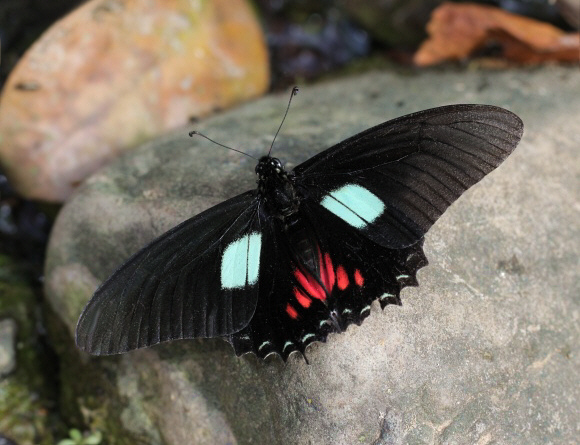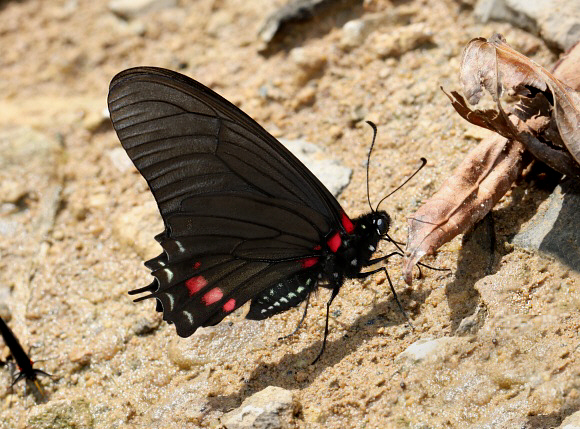
Introduction
The colour and pattern of this species is very similar to that of the Cattlehearts ( Parides ), a group of Papilionids with toxic qualities derived from their larval foodplants Aristolochia. Butterflies in the genus Mimoides however feed as larvae on Annonaceae, and are not thought to be unpalatable to predators. It is likely therefore that xeniades is a Batesian mimic of Parides. The larvae, as well as the adults of Mimoides are very similar in appearance to Parides.
There are 11 species in the genus Mimoides, which is very closely allied to Eurytides.
Mimoides xynias is found in Ecuador, Peru and Bolivia.
Habitats
This species is found in rainforest habitats at elevations between about 200-800m.
Lifecycle
The eggs are laid singly on the foliage of sapling or mature trees in the family Annonaceae.
I can find no data specific to xynias, but the larvae of related species e.g. branchus, when fully grown are typically plump, black, and with 8 fleshy unbranched tubercles on each segment. The tubercles are often reddish. Some species have a cream V-shaped band or similar marking half way along the back.
The pupae of Mimoides species are barrel-shaped and have a prominent horn projecting forward from the thorax. They are attached vertically by the cremaster and a thick silk girdle to a stem or twig on the foodplant.
Adult behaviour
Unlike the Cattlehearts, male Mimoides commonly visit damp patches on sandbanks, forest glades or peccary wallows, to filter-feed by imbibing mineral-rich moisture, and can be seen either singly or in mixed groups with other Papilionids.
While feeding they usually flutter their wings rapidly in typical Papilionid fashion, but sometimes settle for several minutes with wings erect and stationary.

